In Chicago, federal agents hit the streets as homicides spike
Chicago police officers investigate an officer-involved shooting outside the department's 25th district station on July 30, 2020. According to police, a prisoner was shot and and two officers were wounded. (Antonio Perez/Chicago Tribune/Tribune News Service via Getty Images / Getty Images)
CHICAGO - Inside a modified freightliner parked on Chicago's west side this week, technician Jill Jacobson fired two rounds from a black 9mm pistol into a machine designed to capture the unique markings made on a bullet case as ammunition moves through a gun.
Just an hour earlier, a field agent with the U.S. Bureau of Alcohol, Tobacco, Firearms and Explosives brought the weapon to the technology-laden truck, one of roughly 300 federal agents now in Chicago to help local police ramp up efforts to combat gun crime amid a sharp spike in violence.
The Trump administration has called for a surge of hundreds of federal officers in cities such as Chicago, Kansas City, Mo., and Detroit that have seen increases in violent crime. In Chicago, there have been 450 murders in the city this year through Aug. 2, a 55% rise from the year-earlier period, according to Chicago police data.
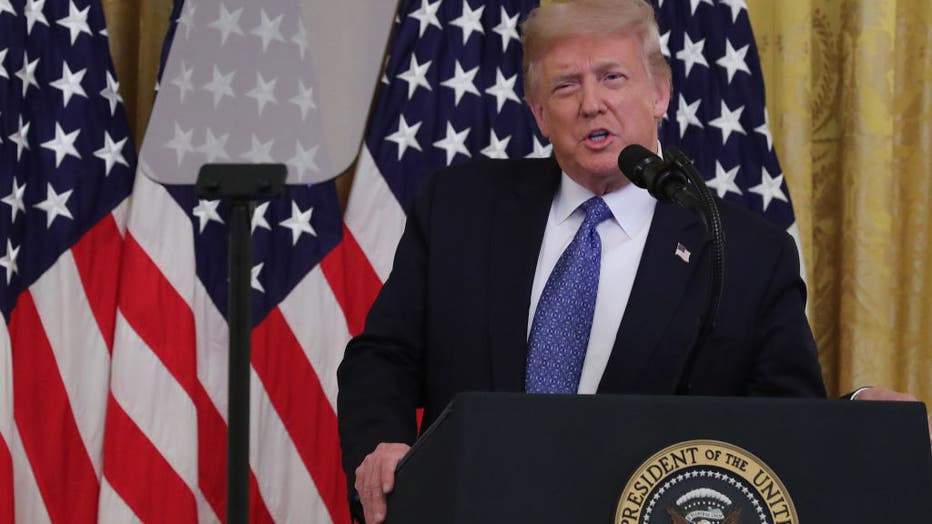
U.S. President Donald Trump speaks during an event about 'Operation Legend: Combating Violent Crime in American Cities' in the East Room of the White House July 22, 2020 in Washington, DC. (Photo by Chip Somodevilla/Getty Images)
This isn't the first time federal agents have been sent to Chicago, which has long struggled with illegal gun trafficking and street gangs. Administrations of both parties have attempted to tackle the city's crime problem for decades by deploying federal resources with mixed results. The significantly larger surge under the Trump administration, called Operation Legend, shows the challenge federal and local officials will face in attempting to curb violent crime.
Justice Department officials have said they will gauge their success based on the number of cases they bring and on whether violent crime rates fall. But they acknowledge the impact of programs like Operation Legend is difficult to gauge in cities like Chicago, where various law-enforcement initiatives and community-driven programs have affected shifting crime rates for years.
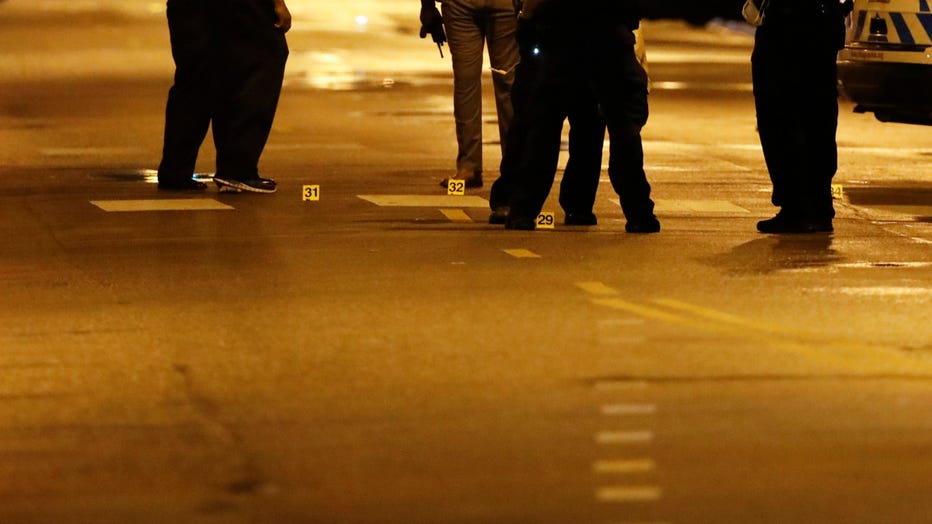
Evidence markers are seen on the ground as Chicago Police officers investigate the scene of a shooting in Chicago, Illinois, on July 21, 2020. (KAMIL KRZACZYNSKI/AFP via Getty Images / Getty Images)
Chicago's U.S. Attorney John Lausch said his office has prosecuted more gun crimes every year since 2017. Yet crime in Chicago has hardly stabilized.
The city has seen 1,804 shooting incidents this year through Aug. 2. That is up 48% compared with the same period in 2019, according to Chicago police data. Residents and experts attribute that increase to a number of factors, including economic and psychological stress from the coronavirus pandemic. This follows declines in the number of shooting incidents in Chicago, which fell from more than 3,500 in 2016 to about 2,150 in 2019.
Mr. Lausch said the current goal is to use the extra federal agents to go after large criminal enterprises and target repeat offenders.
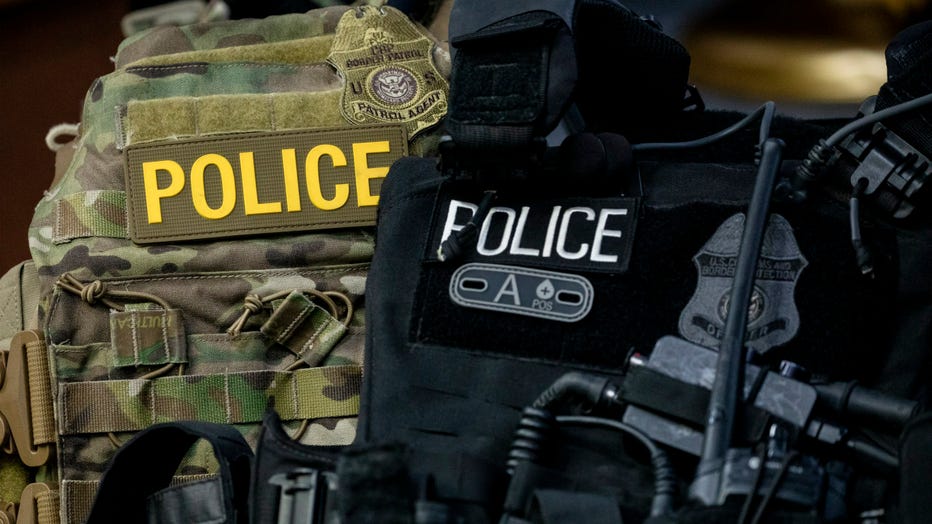
Two examples of the protective vests with identifying markings worn by Border Patrol and Homeland Security agents during a press conference with Secretary of Homeland Security Chad Wolf on the recent events involving the agents during continued prote (Samuel Corum/Getty Images / Getty Images)
"We've seen a lot of impulsive and opportunistic gang-related shootings, " Mr. Lausch said in an interview. "If we can get to the root of that...we think that could be impactful."
Cook County State's Attorney Kim Foxx said her office has worked to tackle violence with the help of federal partners from various administrations, and whether this effort will be more successful than past operations depends on strategy.
"Having additional resources to look at gun prosecution, to look at gun cases is incredibly helpful," she said. "But what we also know, however, is that this is a short-term triage."
The program has led to federal criminal charges in Chicago against three people in its first two weeks: a pair of felons who prosecutors said were found with illegal handguns and ammunition and a third man who was arrested after ATF agents discovered a handgun in his bedroom that had been modified to fire like a machine gun, making it prohibited under federal law.
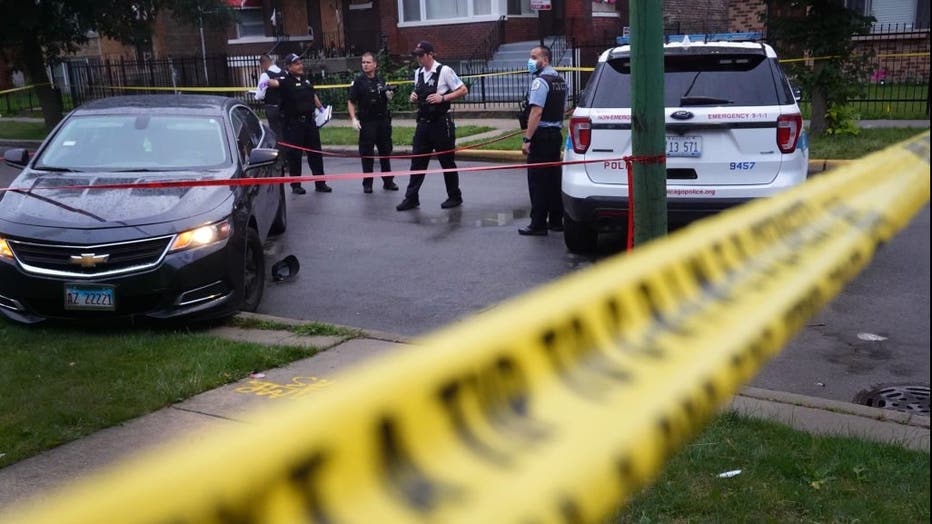
CHICAGO, ILLINOIS - JULY 21: Police investigate the scene of a shooting in the Auburn Gresham neighborhood on July 21, 2020 in Chicago, Illinois. At least 14 people were transported to area hospitals after several gunmen, believed to be in this bulle
Prosecutors can pursue a variety of charges at the federal level, where the potential penalties are typically much tougher. The federal charge of unlawful possession of a firearm by a felon, for example, is punishable by up to 10 years in prison, and those convicted must serve 85% of their sentence, often in a prison far from family and friends.
The latest effort builds upon a similar push by President Trump's first attorney general, Jeff Sessions. In 2017, Mr. Sessions sent 12 additional federal prosecutors and 20 ATF agents to Chicago, where they formed a Chicago Gun Strike Force, which similarly exploited gun-tracing technology to link and solve shootings. Those positions were permanent, whereas most of the agents sent to Chicago last month will return to their usual assignments in about two months.
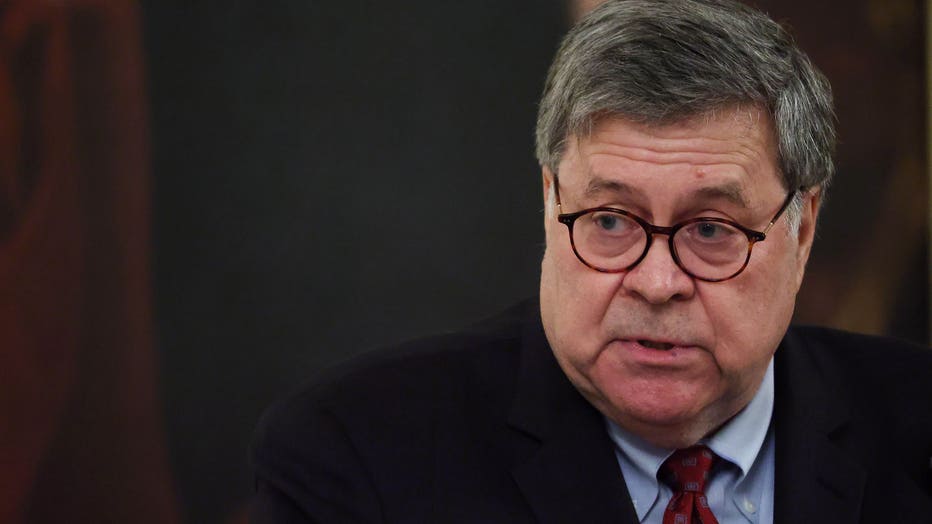
U.S. Attorney General William Barr speaks during an event about Operation Legend in the East Room of the White House July 22, 2020 in Washington, D.C. (Photo by Chip Somodevilla/Getty Images)
Mr. Sessions credits the strategy, similar to one he employed as a federal prosecutor in Mobile, Ala., in the 1980s and '90s, for drops in crime. "You've got to put serious criminals in jail, you cannot leave them out there terrorizing neighborhoods, and gang leaders have to be prosecuted," he said in an interview.
Attorney General William Barr championed similar strategies when he was attorney general under President George H.W. Bush in the 1990s, when rates of violence in the U.S. hit a peak. The Clinton and George W. Bush administrations launched similar enforcement programs with names like Project Exile and Project Safe Neighborhoods that aimed to unite state and federal law enforcement in pursuit of federal gun cases.
The Obama administration also sent federal agents to help cities beset by violence when they requested help, current and former law-enforcement officials said.
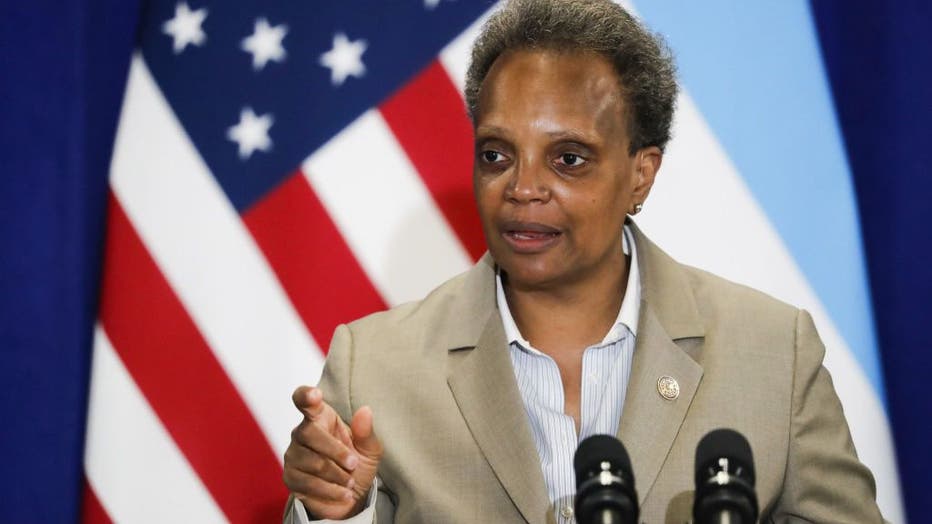
Lori Lightfoot, alcaldesa de Chicago, en conferencia de prensa el lunes 15 de junio de 2020. (Jose M. Osorio/Chicago Tribune/Tribune News Service via Getty Images)
Recalling a similar deployment of federal agents into the city a few years ago, former Chicago Mayor Rahm Emanuel said the aid is most effective when coordinated through and led by Chicago police.
Mr. Trump has clashed with Democratic mayors, including Chicago Mayor Lori Lightfoot about spikes in violent crime, prompting rebuke from Democrats who described the additional resources as an effort to boost Mr. Trump's chances at re-election.
Ms. Lightfoot cautiously welcomed the federal aid.
"The only way to curb violence in our neighborhood for the long term is through all-hands-on-deck partnerships," Ms. Lightfoot said.
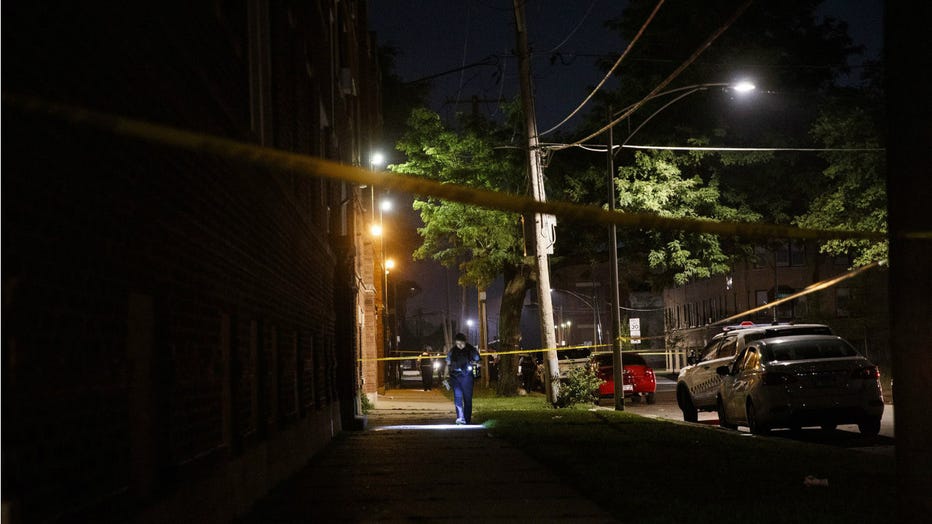
Police work the scene where a 19-year-old man was shot in the 400 block of West 77th Street in Chicago on July 3, 2020. (Armando L. Sanchez/Chicago Tribune/Tribune News Service via Getty Images / Getty Images)
The federal agents in Chicago are operating largely out of public view and working closely with Chicago police officers, many of whom are already stationed alongside them on task forces fighting violent crimes.
They are focusing on solving shootings, arresting fugitives, thwarting illegal gun sales, cracking down on drug-peddling gangs and bringing more cases in federal court.
But some experts doubt that will offer a long-term fix.
GET FOX 32 NEWS ON THE GO BY CLICKING HERE
Lance Williams, a professor of urban community studies at Northeastern Illinois University, said it is unlikely that the federal agents sent to Chicago will have more than a passing impact on spiking gun violence here if root causes of violence aren't also addressed.
"You have broken communities, broken people, people who have basically given up on life," Mr. Williams said. "You have to fix that."
More on Fox Business.

